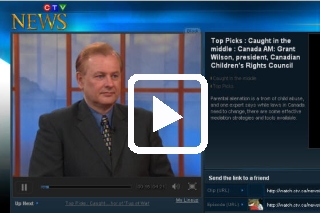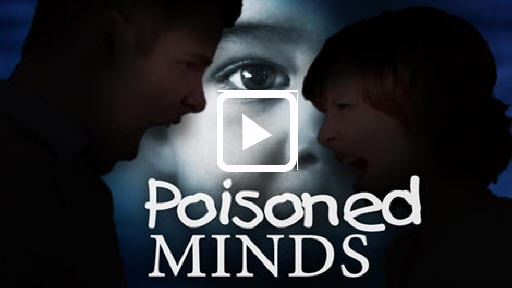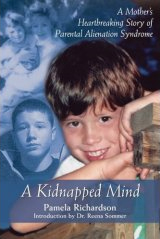Peer Reviews of Parental Child Abduction is Child Abuse
by Nancy Faulkner, PhD (1999)
Peer Review #1
Reviewer: C. William Brett, Ph.D., President, Windmoor Healthcare Inc.
During his thirty year health services career, Dr. Brett has served as a direct services clinician, adjunct professor and doctoral level clinical supervisor, director of community mental health, senior vice president for a national behavioral healthcare corporation, consultant for behavioral healthcare facilities and programs nationwide, and is currently owner and president of a behavioral healthcare corporation.
I have been in the mental health field for thirty years, both as a clinician and as a manager. During this time I have seen countless issues and serious problems resulting from child abduction, as well as parental conflict related to custody. I have to say, in my professional opinion, Dr. Faulkners paper is the first research paper that puts it all in perspective from the research standpoint, as well as information useful to clinical application.
Dr. Faulkner presents this issue in a very logical format, with data and experience that supports her conclusions. The resulting problems from child abduction are at best complex and they are manifested in so many different forms that it has been difficult to capture the issues in a manner that makes logical and clinical sense; however, Dr. Faulkner appears to have accomplished this in this paper. A feat, I might add, that has eluded many researchers.
In conclusion, it is my opinion that this paper, Parental Child Abduction is Child Abuse, is the most comprehensive, well presented, and practical look at child abuse resulting from parental abduction that has been presented to date. This is a must read for anyone in this particular field and more importantly, the judiciary who handle these problems daily.
Peer Review #2
Reviewer: Jan Alan Eglen, Ph.D., ABPP, President, Associated Psychologists.
Dr. Eglen, licensed psychologist and Diplomate in Counseling Psychology, has provided healthcare services for more than twenty years. Included in his spectra of services are direct patient care, evaluations, testing and consultation, -- with specialties in neuropsychology, biofeedback, critical incident stress debriefing, EMDR, behavioral medicine, sex counseling, stress management, anger control, depression, and anxiety -- for children, adolescents, teens, adults, and geriatrics. Dr. Eglen has additionally assessed and evaluated more than 1,000 abused children.
Review:
This article by Dr. Nancy Faulkner is a serious, scholarly, and systematic analysis of the conditions surrounding parental abduction. She is thorough in describing the precipitant environment, likely abductor personality type, rationale (more aptly defined as ir-rationale), and premeditated sadism (intentional behavior for the purpose of hurting the significant other) for this heinous act. The literal translation of the term "abduction" is "the state or condition of leading away". There is no question that the only conclusion at which one can arrive is that abduction in any form is abuse and just because it is a parent doing the "leading away", it is no less a terribly abusive act.
Dr. Faulkner is able to initially focus on the act itself, clearly defining the pathology, separating the actual steps involved in carrying off a kidnapping from the emotions involved. Said another way, she is able to guide the reader to an understanding of both the process (abduction) and the content (abuse) as an attempt at mind control and purposely hurtful and hatefilled behavior in its worst form.
If one were to critique the argument of whether parental abduction is abuse, using the sterile language of statistics as a metaphor, the act meets face, criterion, and reference validity as well as reliability. The language describing the act is offensive (abduction, abuse). The pathology of the abductor, hurt to the other parent and abductee rarely changes. The behaviors of both the abductor and the abductee are able to be reasonably described with certainty both at the near and far terms. The literature, to this reviewer's knowledge, has never surveyed an abduction case with a happy ending unless the abductee was being removed from a previously abusive situation. In that case the term abduction is not appropriate and "rescue" is.
Dr. Faulkner puts the issue squarely before us. You cannot get someone to follow you by walking towards them. An abductor always walks toward the abductee and forcibly makes he/she go with them. Abduction is really a "forcible leading away". If the abductee were a willing party they would follow and not need to be led. That never happens and Dr. Faulkner's powerful treatise sets the standard for defining parental abduction as an abusive behavior. The child is a pawn in a terrible event of trying to hurt the other person. It is an event of paranoid thinking on the part of the abductor run wild.
Dr. Nancy Faulkner is a world stage advocate of children's rights. She has taken on a difficult subject, one that is an abhorrence to most individuals to even hear about let alone discuss logically and civily. She has accomplished that task so professionally and completely as not to inflame the reader into a lynch mob mentality, yet makes the issue and answer to the question posed as demandingly affirmative.
Peer Review #3
Reviewer: Mary Ann Johnson, MD,
Diplomate, American Board of Psychiatry & Neurology in Psychiatry; Diplomate, American Board of Adolescent Psychiatry; Member, Board of Directors: Safeguarding Our Children - United Mothers.
Review:
I have spent more than forty years in clinical practice of psychiatry and have seen the impact of child abuse in its myriad forms. Dr. Faulkner has contributed significantly to our understanding of the impact and consequences of child abuse, with special emphasis on the growing problem of parental abduction. Parental Child Abduction is Child Abuse is a comprehensive summary of the literature and an in-depth review of all the risk factors the victims of parental abduction face.
I am especially impressed by Dr. Faulkner's exposition of the role of parental alienation and the ways it can distort psychological development. I feel this research paper should be read by all of us who work with victims of parental abduction, or work to prevent children becoming victims of parental abduction. Parental Child Abduction is Child Abuse demonstrates how the impact of this particular form of child abuse has pervasive and long lasting deleterious effects on its victims -- not just children, but also parents who become victims.
Peer Review #4
Reviewer: Robin Shamsaie, Ph.D., HSPP
Dr. Shamsaie is a doctoral level school psychologist with independent practice licensure endorsement as a Health Service Provider in Psychology from the state of Indiana. Dr. Shamsaie provides psychological and educational services to children, adolescents and families in private practice, as well as within a residential treatment facility in Terre Haute, Indiana.
Review:
I found Dr. Faulkners documentation of the potentially negative and harmful effects of parental child abduction to be clearly and succinctly articulated. As she notes, there is limited research available to document the developmental impact of parental child abduction on the physical, psychological and emotional health of children. There is increasingly vast scientific literature available, which provides greater understanding of childhood psychological disorders. Her suggestion that these children are at increased risk for developing a variety of mental health disorders was soundly argued. Although I have not personally worked with a child in such a circumstance, it seems fair to say that the parent abductors may be less inclined to seek services for the symptoms their children may experience.
Dr. Faulkner has clearly outlined many potential symptoms that these children may exhibit, similar to other trauma victims. I encourage Dr. Faulkner to consider how our schools can assist in identifying these children and assisting them in obtaining services, as well as adding to our understanding of the consequences of parental child abduction.
I applaud Dr. Faulkner's ongoing dedication to heighten awareness of child abuse.
NOTE: It is particularly noteworthy to mention that in post-review discussions with Dr. Shamsaie, she addressed the issue of victims who ultimately identify and align with their abusers. This phenomenon is an excellent topic and might possibly be addressed in a follow-up report.
Update: August, 2000
Law Review of Parental Alienation Syndrome
One Voice Justice for Children Advocacy, August 6, 2000:
A New York county court refused to allow a sex abuse defendant to present evidence of Parental Alienation Syndrome (PAS) where the defendant failed to establish general acceptance of PAS by mental health experts. New York v. Fortin, 706N.Y.2d611 (N.Y. County Ct. 2000).
Michael Fortin was charged with sex crimes against his wife's 13-year-old niece. He moved to introduce testimony about PAS. The prosecution requested and was granted a hearing on the admissibility of such testimony pursuant to Frye v. United States, 293F.1013 (D. C Cir. 1923). Defense psychiatrist Richard Gardner, one of the first persons to write about and discuss PAS, testified that PAS typically arises when one parent programs a child in a campaign of denigration of the other parent, although PAS may also occur when other family members are involved. Under cross-examination, Gardner admitted that he previously had written that psychodynamic psychiatry is the most speculative of all alleged sciences and that the concept of scientific proof is less important in that field than in other sciences, particularly with respect to persons charged with committing sexual abuse.
The court found the proffered evidence inadmissible, holding that Fortin failed to establish that the scientific community has arrived at a general acceptance of PAS given the lack of a clear consensus by psychologists of the existence of this syndrome. In New York v. Wesley, 611 N.Y.S.2d97 (N.Y. Ct.App.1994), the chief justice stated that a court shall not take pioneering risks in accepting new scientific techniques "because premature admission both prejudices litigants and short-circuits debate necessary to determine the accuracy of a technique."
Source: MPDLR (Mental & Physical Disability Law Reporter) 24:3, May/June 2000
NOTE: Posting this brief law review of PAS as published in the MPDLR is neither a condemnation nor endorsement by this website, only a comment on the status as related to court applications.
Also see - Another Perspective of Parental Alienation ~ discussion of PA (parental alienation) and PAS, by Douglas Darnall, PhD, (1997). In this review of parental alienation, Dr. Darnall makes an excellent point that is worth noting: "Alienation is a process, not a person."
Update: October, 2000
Posttraumatic Stress May be Higher in Children Who Lose Parents
Parentally bereaved children and adolescents appear to experience more post traumatic stress disorder (PTSD) symptoms than do children who have survived tornadoes, researchers report in the September issue of the Journal of the American Academy of Child and Adolescent Psychiatry. More -- Medscape.
Additional Resources
Parental Alienation website by Douglas Darnall, PhD.
Directory of PA Resources by Douglas Darnall, PhD.
PARENT ~ Parents Advocating for Return through Education by Networking Together is an international advocacy organization working with parents and agencies world wide to bring about greater awareness and understanding concerning international child abduction and to seek measures leading to the prevention and remedy of this growing global problem.
Run, Mommy, Run by Talia Carner, Women's Enews commentator.
"When I was 7 years old, my father kidnapped me and kept me hidden for two years. (He did not molest me, but his occasional beatings were particularly harsh.) He deposited me with a foster family and visited every week or two. He neither wanted me nor loved me, but I was an excellent pawn in his divorce battle over money and property matters. When my mother found me in school a year after my disappearance, my father showed up within an hour after being alerted by the principal's phone call. I was whisked away to another family. The trauma of being snatched away from my mother never left me. It marked my identity well into adulthood."
French translation, November, 2000
French translation, compliments of the "Swiss Movement Against the Kidnapping of Children."
[NOTE: Author not responsible for translation accuracy.]
References for Parental Child Abduction is Child Abuse
Attachment Center - At Evergreen (ACE). What is attachment disorder?, May 99.
Clawar SS, Rivlin BV: Children held hostage: Dealing with programmed and brainwashed children. ABA Section of Family Law, ISBN No. 0-89707-628-1.
Diagnostic and Statistical Manual of Mental Disorders - Fourth Edition (DSM-IV). American Psychiatric Association, Washington DC, 1994.
Garbarino J, Guttmann E, Seeley JW: The psychologically battered child: Strategies for identification, assessment, and intervention. San Francisco, Josey-Bass Publishers, 1986.
Greif GL, Hegar, R: When parents kidnap, New York: Free Press, 1993.
Greif GL: The Impact of Parental Abduction on Children. Personal communication and public speaking notes provided by GL Greif, May 27, 1999.
Hoff PM: Parental kidnapping: Prevention and remedies. Parental Abduction Training and Dissemination Project, American Bar Association Center on Children and the Law, 1997.
Huntington, DS: Parental kidnapping: A new form of child abuse, 1982.
Huntington DS: The forgotten figures in divorce, in Divorce and Fatherhood: The struggle for parental identity. Edited by Jacobs JW, Washington DC, American Psychiatric Association Press, 1986.
Johnston JR, Campbell LE: Impasses of divorce: The dynamics and resolution of family conflict. New York, The Free Press, 1988
Jones M, Lund M, Sullivan M: Dealing with parental alienation in high conflict custody cases. Presented at the conference of the Association of Family and Conciliation Courts, San Antonio, TX, 1996.
Lalli, AN: Arguments For Human Research Subject Protection Without Waivers or Exceptions, Sept 97.
Levy TM, Orlans, M: Attachment, trauma, and healing: Understanding and treating attachment disorder in children and families. Child Welfare League of America, 1999.
Rand DC: The spectrum of the parental alienation syndrome. American Journal of Forensic Psychology, 15-3, 1997.
Stringer K: What is attachment? ToddlerTime, May 99.
Tucker-Ladd, CE: Psychological Self Help. University of Iowa, 1960.
Van Bloem LL: Attachment oriented individual and family therapy. Attachment Home Page, Feb 99.
Wallerstein JS, Blakeslee S: Second chances. New York, Ticknor & Fields, 1989.
Wallerstein JS, Kelly JB: Surviving the breakup: How children and parents cope with divorce. New York, Basic Books, 1980.









